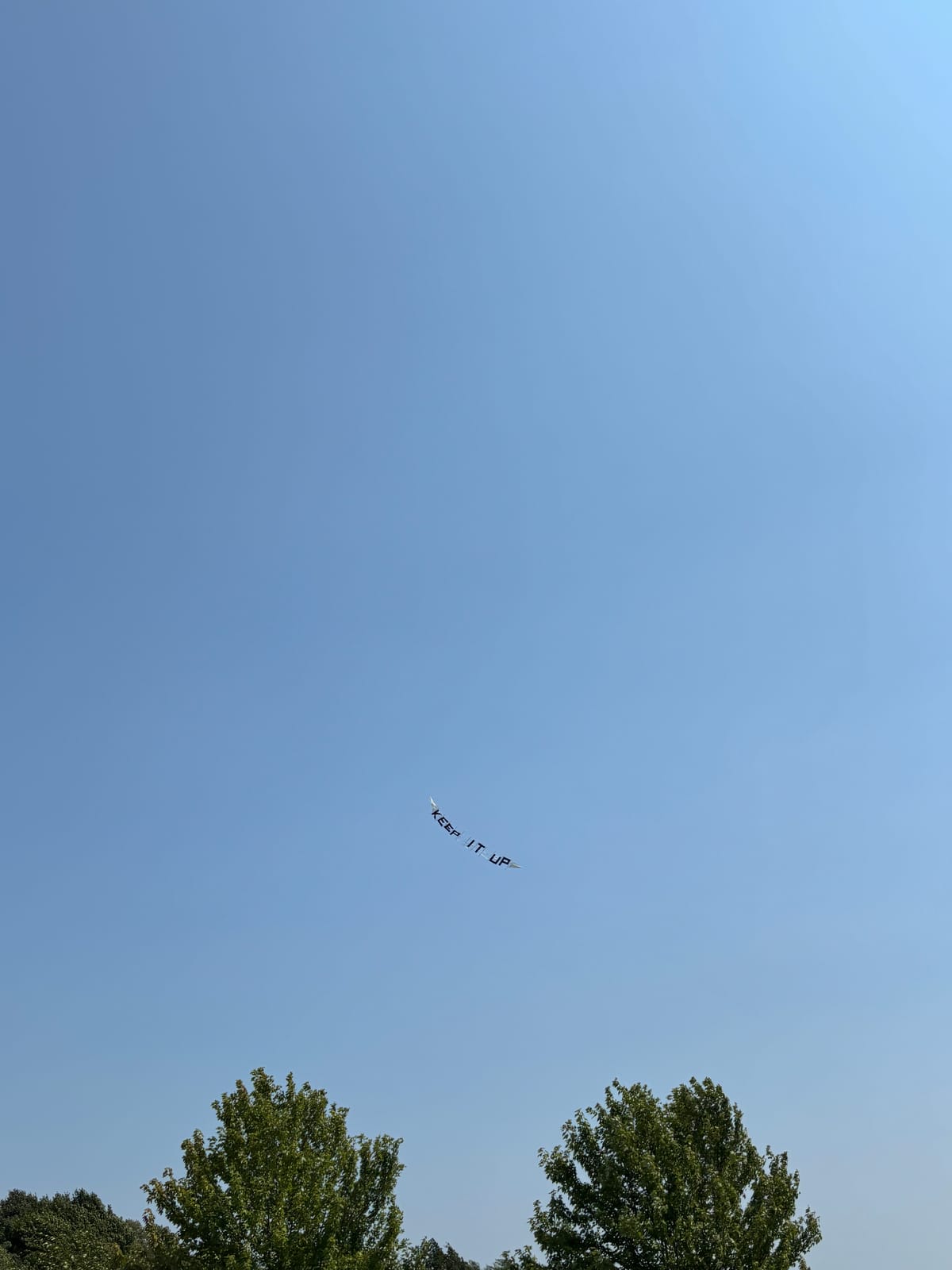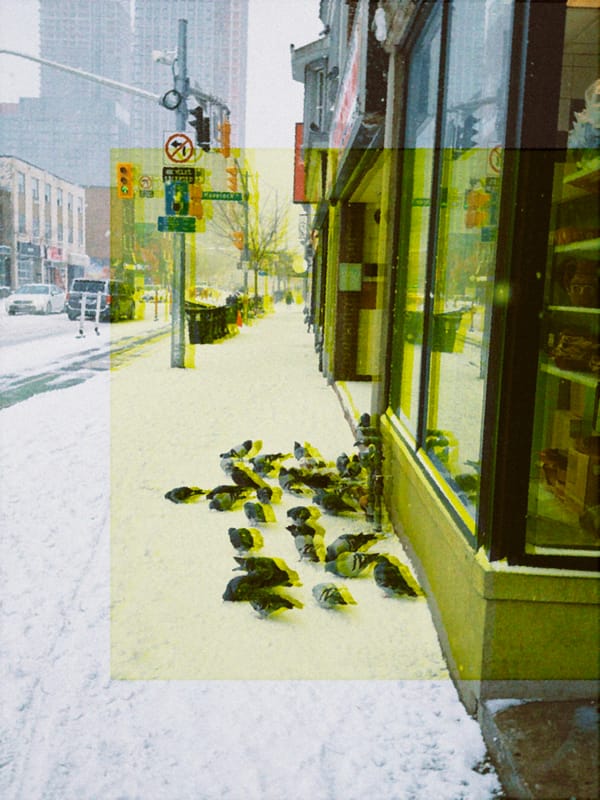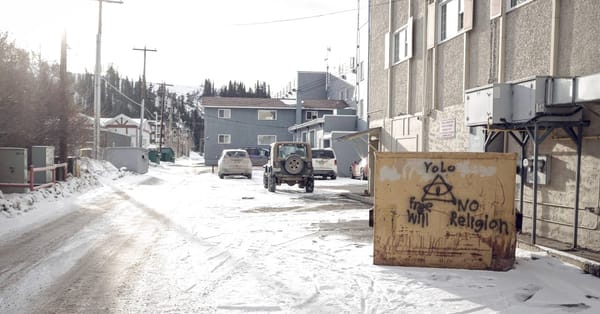Everything Looks Perfect From Far Away

Do you ever think about how the emotional core of “Such Great Heights” will never feel the same due to an alarming lack of answering machines? I mean, yes, sure, even without the machine it is still an emotionally resonant song about long-distance yearning, but that distance feels cheated now. Narrowed by the ceaseless and largely unnecessary improvements in technology in the years since The Postal Service’s brief dalliance with the emotional wave pool of early aughts' indie pop.
It’s why I think the Iron and Wine cover, while fine and beautiful in its own way, loses something in translation. The song gears down too hard too quickly when filtered through Sam Beam’s hushed voice and delicately plucked nylon string. It sounds as if it could very well have been recorded through an answering machine, and you are left to wonder how a tape and a machine could not capture its tender frequencies. The desperate yearning of the original disappears in favour of a more somber and contemplative approach. No less beautiful, but without urgency. Careful to never shred the tape while all its hopeful affections are laid gently out on the table.
The answering machine—and its limitations—is where the blood pumps to keep the rhythm of the song alive. A monument to longing and lost love, tethered to a phone that can only hold what secrets and desires are gifted to it. A machine built of such simple things, buttons that click when prompted, the movement of gears into position, the blinking red light announcing there is something new, something to be discovered. Magnetic tape, thin as rice paper, that could only capture the hiss of the high end, could never fully grasp the rich depth in the low end of life’s richer moments. There’s a serene, wistful beauty in “Such Great Heights”, a loving ode to the tenderness of hearts at a distance, told with synths and drum machines at a frenetic tempo.
I tried my best to leave
This all on your machine
But the persistent beat
it sounded thin upon listening
There was romance spooled onto the tape on any given answering machine on any given day. Romance between lovers, romance between friends at a distance. There are timeless stories that build from messages left on a tape, stories that used to be physical, analog signals that remain only as stories shared. I think about an old friend, one of countless old drinking compatriots, who moved away to build a new life far away from the shores of persistent alcoholism we found ourselves trending in. When he went out to some other bar in some other city, he would come home and call a mutual friend at an hour when he knew she would be away from the phone and leave as much of Modest Mouse’s “Long-Distance Drunk” on her machine as possible. A love letter to a friend to let her know he was still out there, always thinking of her in his own way, and wanted to stay connected.
This isn’t to say it’s gone. It’s just different now. Newer, easier. Colder in its own way. I have voice mail on my phone that I never use, AI roughly translates my messages into poorly structured texts letting me know my mom called, and that my name is spelled Nicol. People leave long voice recordings in text messages (a friend of mine calls these analog podcasts and I love them more in that framing) but it never feels the same. I rarely call anyone, I dread when my phone actually rings. I have one friend who calls unexpectedly, and I will always answer if it’s them. Everyone else is a text in my phone, a DMs on whatever social media apps I have yet to delete from my home page. It’s fine, practical and useful, but it’s lifeless to me. There are few to zero stories that I will hold forever in my mind about a perfect text from a friend, the same way that I think about a message trapped in tape on a machine lost long ago.
It’s funny, then, that the answering machine is such an analog relic in a digital landscape. The Postal Service’s lone record, Give Up is built on a foundation of digital noise, all samples and patches. “Such Great Heights” is driven by cascading bubbles of synths and twirling keyboards, joined by glitchy hisses and a tempo like a moving sidewalk on the fritz. It’s dynamic and frantic, but it feels contained all the same. Like there are hands on the machine ensuring all its parts move and do exactly what they’re asked and nothing more. Digital held in analog hands, desperately trying to make waves on an answering machine that cannot hold all it is being given.
This is what I mean when I say the answering machine holds a kind of romantic heart. There’s something desperate about a message left on a machine. Something urgent, something passionate even. You can plan through what you want to say, but it might not be right, it might not hit the way you want it to. It might never be perfect. Technology offers too many opportunities to make an idea in our head appear perfect on the screen, and I sometimes worry about everything lost when all our most urgent emotions are sanded down to their shiniest, safest parts. Technology has made so many improvements in so many places. It has closed distances, it has allowed us to stay connected at great and small distances, and we are better for all of these things too. None of this is to say I don’t think we should have iMessage and FaceTime and the countless DMs I’m behind on in all my social media apps. It’s just that there used to be something else too, something more analog, and we are swiftly killing all those things in favour of the flash of the present, and I am simply mourning the romance of leaving messages on delicate tape that will never be perfect, and will be remembered forever.




